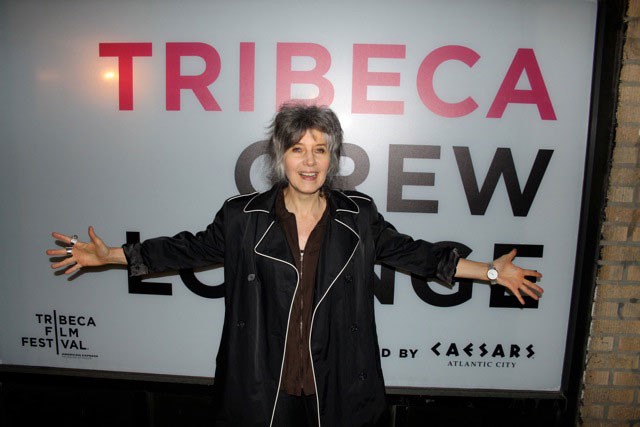Drake Stutesman, Moderator, "Independent Women: 15 Years of NYWIFT-Funded Film Preservation"
by Andrew Piccone

Where does your interest in film come from?
That’s an interesting question. When I was younger I was very interested in women in the arts, and especially film but I only knew a handful of the obvious names. Y’know Dorothy Arzner, but I felt very strongly that films should not be lost. The original films, they must be kept to speak for themselves. When you have nothing but other people interpreting what the films were really like you’re in trouble.
Are you a filmmaker?
My film side is that I edit a film and media journal called Framework and I also write about film — particularly costume design. So no, I’ve never been interested in making films, but film has really been hugely consoling, inspiring and teaching for me, the idea of movies for therapeutic reasons as much as entertainment. You see a movie to calm down, be enlivened, be inspired, to be carried away. Yes, film has been hugely inspiring to me and has influenced my writing a lot.
How did you choose the films for the panel tonight?
Well, that was really Jon Gartenberg, but Tribeca Film Festival has been hugely supportive of NYWIFT (New York Women in Film and Television), we showed here twice before a variety of different films. We sent Jon a list of films that might interest him and he choose those films and decided it might be great to package them together as a group highlighting women in experimental film, he was particularly interested in that.
What else have you seen at Tribeca this year that caught your eye?
I have seen some really good stuff this year. My favorite film was Artificial Paradises, I thought it was just sensational. Directed by a woman as it turns out, Yulene Olaizola. It’s set in Mexico, incredible eye, very unconventional approach to a very typical subject. Very simple, but also very grand, very huge. I thought the film that won best narrative, She Monkeys, was also very interesting. In one sense it made me feel very uncomfortable, which over the years I’ve learned is a sign, and it’s very professionally made, very interesting. Also made by a woman as it turns out, Lisa Aschan.
How do you feel about the state of film in 2011?
Well, I think there is always a fringe and a mainstream in the way human beings are. What those fringes and mainstreams are, not only in terms of their identities but also how they’re made up changes year to year and decade to decade. Also the technology changes a lot of that. Younger people will always have great imagination, great talent. There is always going to be someone who is excited about art that’s from the past, or narrative from the past. I think the shift in technology means that young people are less focused on the size of the screen particularly, the size of the screen is not as important as it has been for past generations. Technology changes things so quickly. I don’t have any bleak thoughts about it, that’s for sure.

Members of the Independent Women: 15 Years Of NYWIFT-Funded Film Preservation panel: From left to right, Cecile Starr, Barbara Hammer and Drake Stutesman.
Andrew Piccone is a photographer in New York.
